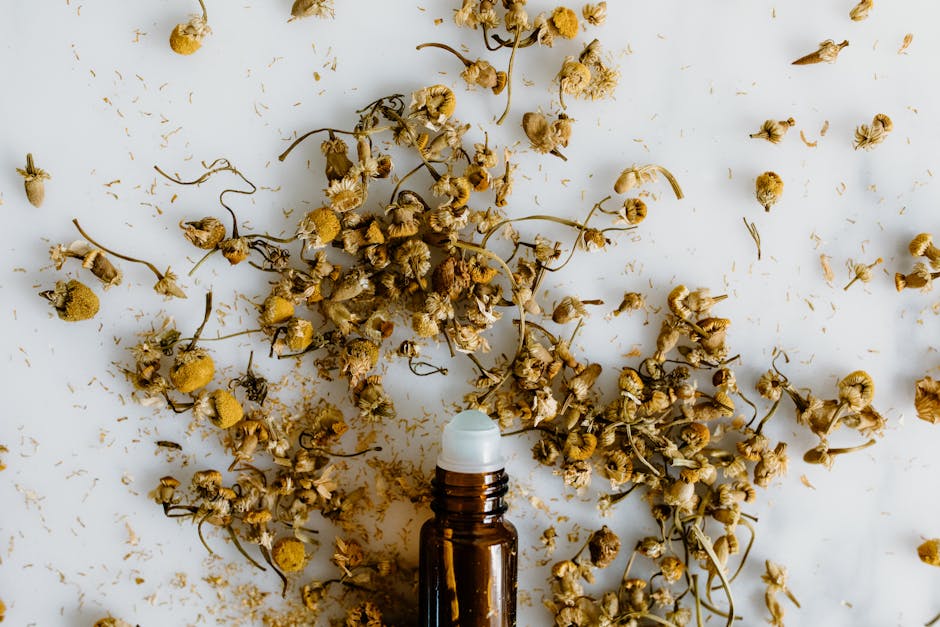Peppermint oil possesses a myriad of unique and versatile healing properties which stem from its rich concentration of nutrients and minerals. Derived from the species Mentha piperita, this essential oil has roots in ancient medical practices and its potent medicinal properties have been acknowledged by modern science.
Known for its distinct scent and potent properties, it offers a series of health benefits. Here’s a snapshot of some of its key healing characteristics:
- Anti-inflammatory properties: Peppermint oil provides swift relief from inflammation, including those related to migraines or sinus congestion.
- Antimicrobial action: It actively works against bacteria, viruses, and fungi, safeguarding your health.
- Astringent qualities: Handy for skin health, it helps to tighten your skin and close pores.
However, to fully unleash the wondrous healing abilities of peppermint oil, ensure you invest in a high-quality, 100% pure product free from additives or diluting agents.
The Magic of Peppermint Oil in Skin and Hair Care
Lustrous hair and a glowing complexion might just be a sniff away. Peppermint oil has found its place on many a bathroom counter due to its impressive skincare and haircare benefits. Its strong antimicrobial action keeps skin infections and acne at bay, while its soothing nature relives itching and inflammation. When it comes to hair care, it combats dandruff, stimulates hair growth, and even tames frizz.
Feeling creative? Try these DIY skin and hair care recipes using peppermint oil:
- Moisturizing Face Mask: Mix peppermint oil with honey and aloe vera gel for a soothing and moisturizing face mask.
- Hair Growth Serum: Combine peppermint oil with coconut oil and massage into your scalp to stimulate hair growth.
But always remember to do a patch test before applying peppermint oil on the skin or scalp. Everybody is unique, and the strong nature of this oil can sometimes lead to sensitivities or allergies.
Improving Digestive Health with Peppermint Oil
Frequent bouts of bloating and indigestion interfering with your day? Peppermint oil might be your ally in combating digestive discomfort. The ingestion of this oil has been associated with relief from various digestive ailments, such as IBS, due to its ability to soothe the smooth muscles of the gastrointestinal tract.
However, like with any potent substance, there are guidelines to follow when ingesting peppermint oil:
- Always ensure your oil is of food-grade quality.
- Start small; a few drops diluted in water can be sufficient to reap the benefits.
In the wider discussion around benefits and risks, it’s essential to note that consuming peppermint oil may not be suitable for everybody. Particularly, those with acid reflux or pregnant women should exercise caution. Always consult a healthcare professional if you’re unsure.
Enhancing Mental Well-being with Peppermint Oil
Peppermint oil is not only great for your physiological health, but it can work wonders for your mental well-being too. Experiencing moments of stress, fatigue or just general brain fog? This handy oil can be your solution. The aroma of peppermint oil has been linked to enhanced cognitive function, reduced mental fatigue, and improved concentration.
Wondering how to use peppermint oil for mental well-being? Here’s a quick guide:
- Diffuse it in your workspace or home for a refreshing and stimulating scent.
- Add a few drops to a warm bath for a relaxing soak.
- Inhale directly from the bottle for a quick mental reset.
Remember, less is more when it comes to essential oils. Always dilute peppermint oil with a carrier oil before applying topically to prevent skin irritation.
Keep Pests at Bay with Peppermint Oil
The strong, distinct aroma of peppermint oil has been found to repel a wide variety of pests including mosquitoes, ants, flies, and even ticks. This makes it a great natural alternative to traditional insect repellents that often contain harsh chemicals.
Follow these simple steps to effectively use peppermint oil for pest control:
- Combine a few drops of oil with water in a spray bottle.
- Shake well and spray in areas where you notice pests.
In a comparison with other natural insect repellents, peppermint oil stands out, particularly for its strong scent that bugs truly loathe.
Peppermint Oil: A Star in Aromatherapy
Aromatherapy and peppermint oil go hand-in-hand. Its smell invokes feelings of refreshment, rejuvenation, and mental clarity. Moreover, it also provides relief from allergies like stuffy noses and sinus congestion.
If you’re looking to spice up your aromatherapy experience, consider blending peppermint oil with other essential oils such as:
- Eucalyptus: For a cooling and clearing aroma.
- Lavender: For a calming and soothing fragrance.
To make the most of peppermint oil in aromatherapy, remember:
- Never heat essential oils directly. Always use a diffuser.
- Store your peppermint oil in a cool, dark place to maintain its quality.
With its unique healing properties and wide array of uses, peppermint oil is definitely a multi-faceted star in the world of essential oils. Whether you’re seeking digestive comfort, skin health, mental clarity, or a natural pest repellant, this oil might just be your perfect ally. Just remember to use it responsibly and enjoy its abundant benefits.
Key Takeaway:
- Peppermint oil has a wide range of uses with its unique versatile healing properties, making it a valuable oil in ancient and modern medicine.
- With its anti-inflammatory, antimicrobial, and astringent properties, peppermint oil is beneficial for skin and hair care, while also aiding in digestive health and mental well-being.
- Peppermint oil proves extremely helpful as a natural pest repellent and provides a pleasing aroma for aromatherapy.
- Despite its benefits, it is vital to ensure safe usage of pepper mint oil by using with caution, always patch testing it on skin, taking care with ingestion, and diluting it to prevent direct skin contact.
From the soothing alleviation of digestive discomfort to promoting lustrous hair and clear skin, peppermint oil amasses a wealth of benefits. However, it is paramount that we value and respect its potency by always using it carefully and responsibly. With a high-quality, pure peppermint oil and careful observation of the best practices, you can truly tap into its diverse powers and improve your wellness journey.
FAQs
Q: Can peppermint oil help with mental stress and anxiety?
A: Yes, peppermint oil is known to assist in reducing stress and fostering a calming environment. Its aroma is linked to enhanced cognitive function and reduced mental fatigue.
Q: Is it safe to ingest peppermint oil directly?
A: It is typically recommended to ingest peppermint oil when diluted in water or other beverages, and always to use food-grade quality oil. Pregnant women, people with acid reflux or other digestive issues should consult a healthcare professional before ingestion.
Q: Can I use peppermint oil for my pets’ flea or tick problems?
A: While peppermint oil is a natural pest repellent, it might not be safe for all pets. Certain animals may be sensitive or allergic to it, so it’s important to consult with a veterinarian before using peppermint oil on your pets.
Q: How can I use peppermint oil in aromatherapy?
A: Use a diffuser to disperse the oil in the air for aromatherapy purposes. You could also blend it with other essential oils like eucalyptus or lavender to amplify the effects.
Q: Can peppermint oil be applied directly on skin?
A: Peppermint oil is potent and can cause skin irritation if applied directly. Always dilute it with a carrier oil before applying it on the skin.
We hope the above information has been beneficial in deepening your understanding of peppermint oil. Feel free to share this article with others who might find it useful, and explore more informative posts on our website.






